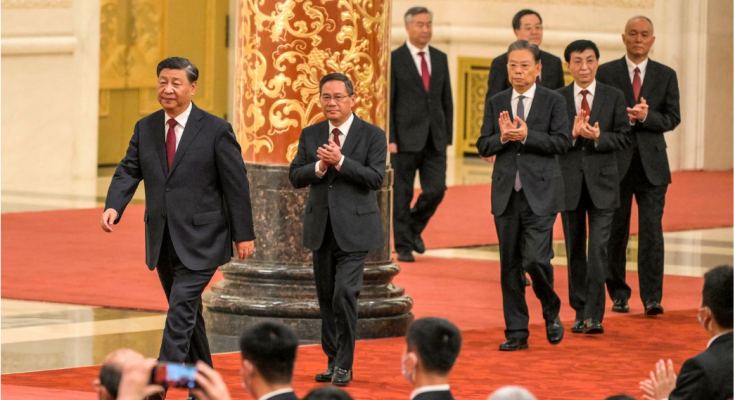Chinese President Xi Jinping has repeatedly emphasized the importance of perseverance, resilience, and dedication in the pursuit of national development. His call for the Chinese people to “work hard with great tenacity” is not just a motivational statement but a core philosophy that underpins his leadership and vision for China’s future.
This message reflects his commitment to achieving the “Chinese Dream,” which encompasses economic prosperity, social stability, and national rejuvenation. Through various speeches, policies, and directives, Xi has urged citizens to embrace hard work, innovation, and unity as China navigates domestic and global challenges.
The Significance of Xi’s Call for Hard Work
Xi Jinping’s call for tenacity aligns with his broader strategy of ensuring China’s continued rise as a global power. His leadership has been marked by ambitious goals such as poverty alleviation, technological advancements, military modernization, and environmental sustainability. The emphasis on hard work and resilience resonates with historical Chinese values and reflects the government’s expectation that citizens contribute to national progress.
In various speeches, including his addresses at the National Congress of the Communist Party of China (CPC), Xi has highlighted the importance of determination in overcoming obstacles. He has frequently referenced historical struggles, such as China’s journey from poverty to prosperity, to inspire the people to remain steadfast in the face of difficulties.
Economic Development and Innovation
China’s rapid economic transformation has been largely driven by its workforce’s relentless efforts. Xi has continuously stressed the need for China to maintain its momentum by fostering innovation, improving productivity, and advancing high-tech industries. Under his leadership, China has made significant strides in areas such as artificial intelligence, renewable energy, and space exploration.
However, as China faces economic slowdowns, trade tensions, and shifts in the global market, Xi’s call for hard work with great tenacity becomes even more relevant. He has urged businesses and workers to remain focused and adaptable, ensuring that China continues to be a leader in global economic affairs.
National Unity and Social Stability
Beyond economic development, Xi Jinping’s call for perseverance extends to maintaining national unity and social harmony. In the face of challenges such as the COVID-19 pandemic, geopolitical tensions, and internal reforms, he has emphasized the need for collective effort. His leadership has promoted values such as patriotism, discipline, and self-sacrifice, reinforcing the idea that national success depends on the contributions of every citizen.
Xi has also stressed the importance of ideological unity under the Communist Party’s leadership. He has encouraged citizens to align with the government’s vision and work toward common goals, fostering a sense of national pride and duty.
Challenges and Criticisms
While Xi’s emphasis on hard work and resilience has been widely promoted in state media and official speeches, it has also faced criticism. Some argue that the intense focus on perseverance and national duty places immense pressure on workers, particularly in sectors with demanding labor conditions. The “996” work culture—working from 9 a.m. to 9 p.m., six days a week—has been a subject of controversy, with critics arguing that it leads to worker burnout and limits work-life balance.
Additionally, some observers believe that the government’s emphasis on perseverance may serve as a justification for strict policies and crackdowns on dissent. Under Xi’s leadership, China has seen increased restrictions on internet freedoms, human rights, and political opposition, raising concerns about whether the call for tenacity also implies unquestioned loyalty to the state.
Conclusion
Xi Jinping’s message to “work hard with great tenacity” encapsulates his vision for China’s future—one where perseverance, innovation, and unity drive the nation forward. While his leadership has achieved significant economic and political milestones, the emphasis on relentless hard work also raises important questions about work-life balance, individual freedoms, and the broader implications of national ambition.
Would you like any adjustments or additions to this?



